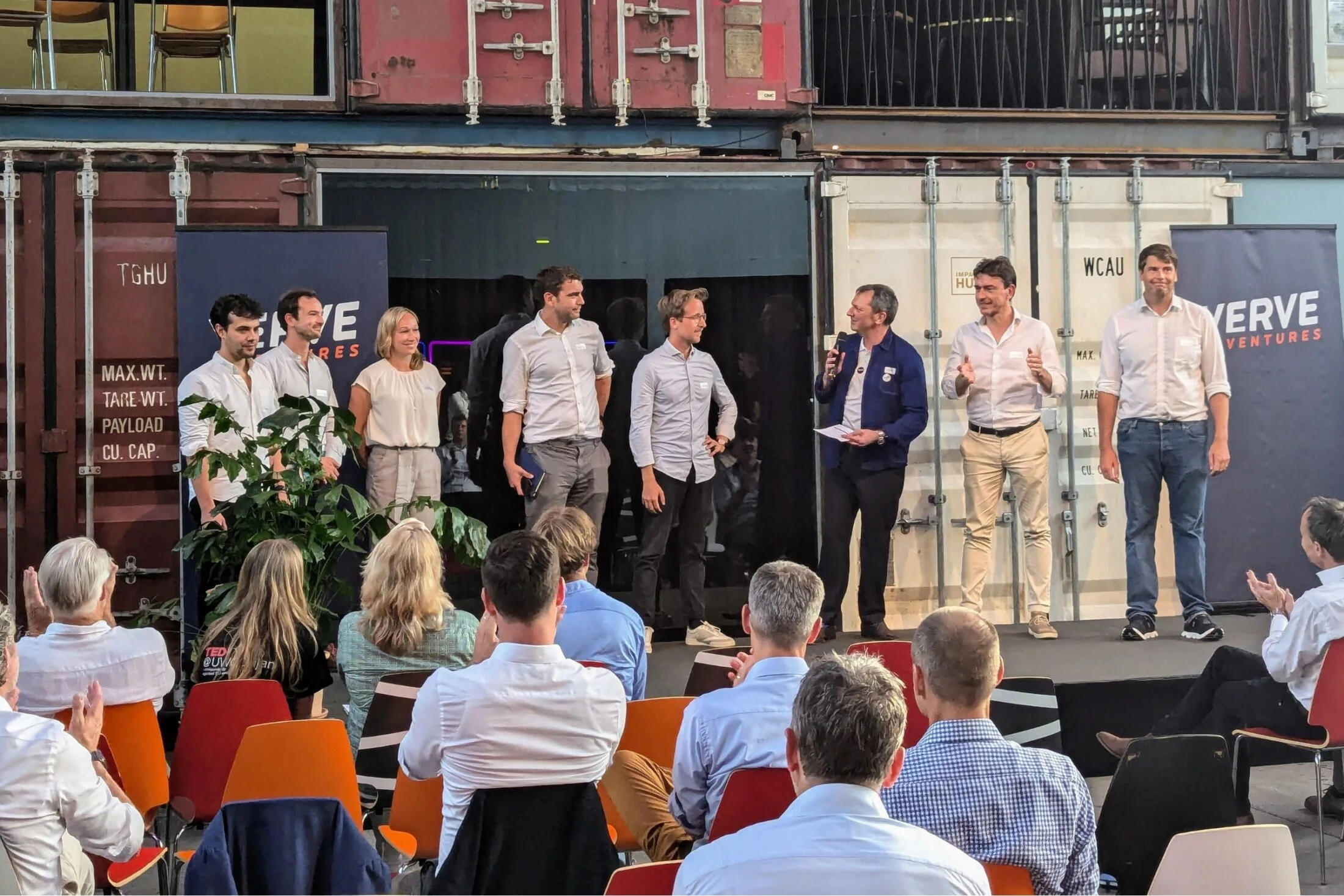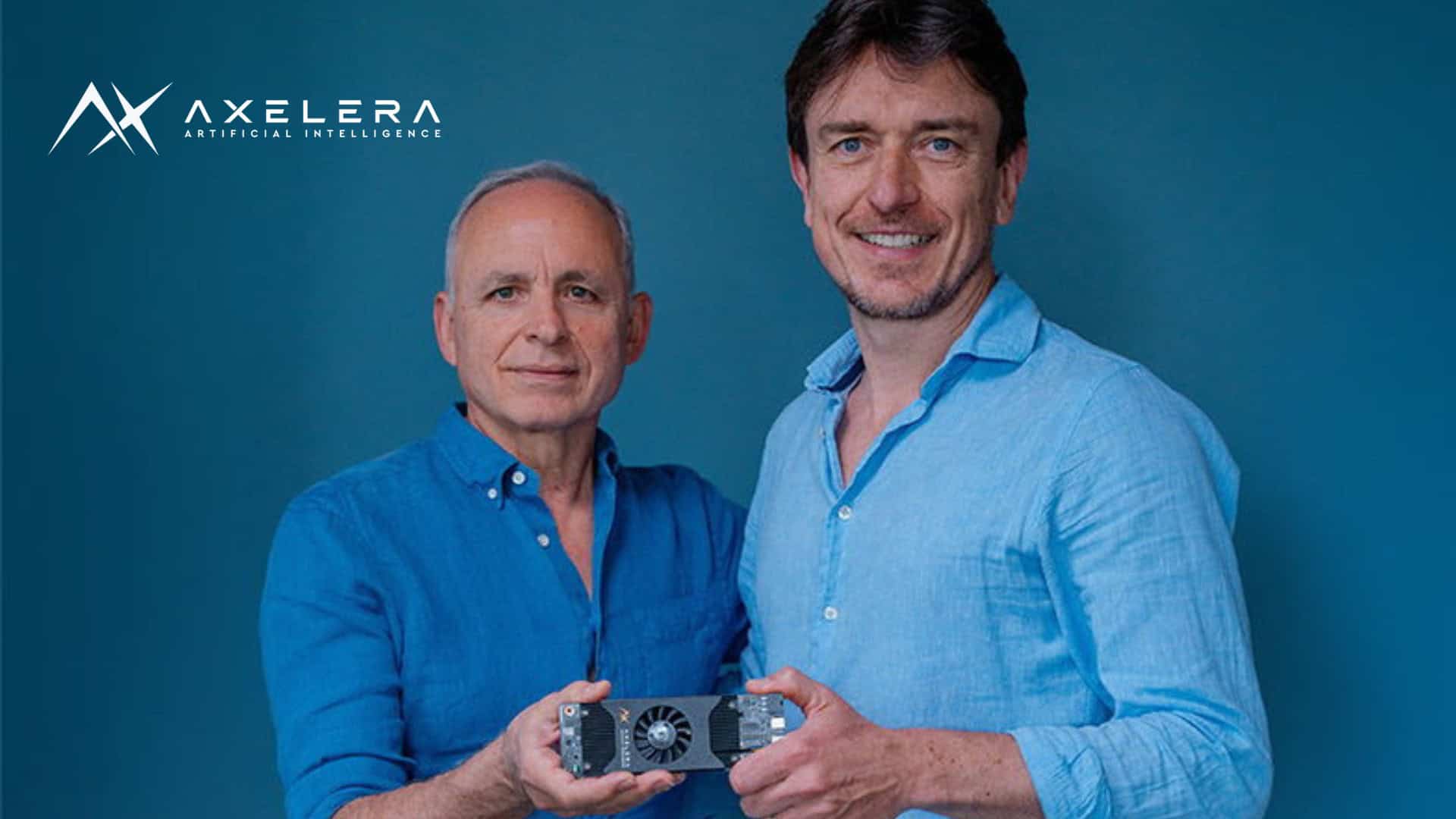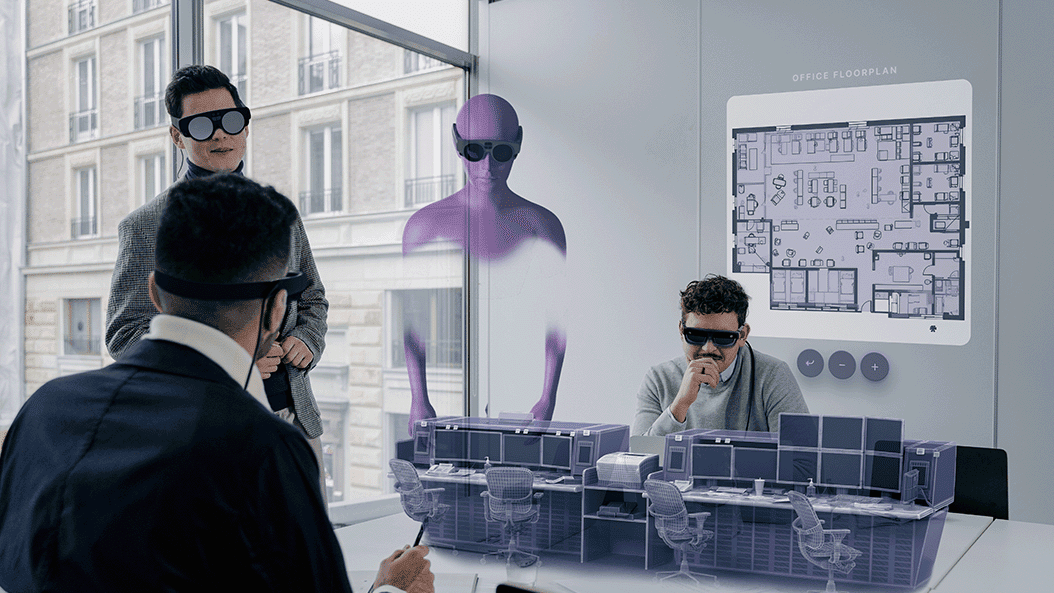In four years, Axelera has developed and launched its Metis AI accelerator chip, raised more than 200 million euros, and grown to 200+ people. Axelera’s CEO Fabrizio Del Maffeo thinks big, moves fast, and hires missionaries, not mercenaries, as he says in our interview.

CEO and Co-founder, Axelera AI
Fabrizio co-founded Axelera in 2021 with Evangelos Eleftheriou, assembling a world-class team from leading tech firms and research institutions. The company has secured more than EUR 200 million in funding and is recognized for its Metis AI platform, which accelerates computer vision in edge devices. Del Maffeo holds a Master’s degree in Telecommunication Engineering from Politecnico di Milano and completed executive education in Mergers & Acquisitions at London Business School.
Axelera is well-positioned to become a global player in the next wave of AI hardware. The demand for rapid data processing, where data is collected, is increasing rapidly. This processing occurs in centralized data centers (cloud computing), which is time-consuming and power-intensive.
Axelera’s proprietary technology, digital in-memory computing, enables a 3- to 5-fold increase in efficiency and performance. By placing computing power directly in the memory chip, time- and energy-intensive data movements between devices and the cloud are eliminated. Consequently, AI calculations are performed at the edge, where data is generated.
The flagship Metis AI platform, which combines hardware and software, is already shipping to customers. It is designed to accelerate AI inference workloads, such as processing video streams at the edge.
Headquartered in the AI Innovation Center of the High Tech Campus in Eindhoven, the Netherlands, Axelera AI has R&D offices in Belgium, Switzerland, Italy and the UK. By the end of 2025, Axelera will have around 250+ employees. The company has raised over €225 million in three years, including a grant of up to €61.8 million from the EU and member states to develop the Titania AI chiplet and ensure European technological sovereignty.
In just four years since you founded Axelera, the company has expanded to 30 offices across over 10 countries, employing nearly 200 staff members. What’s the secret behind Axelera’s incredible speed?
Many people have great ideas but hesitate to act, especially in European culture, where we tend to overanalyze before making decisions. That slows companies down. At Axelera, we take risks and move fast. Execution is everything. We accept that we’ll make mistakes and that’s fine. Mistakes are part of the journey.
What kind of people do you hire to maintain that pace?
Actually, hiring is where we go pretty slow. We’re ultra-selective. Each candidate goes through six or seven interviews. Engineers are rigorously tested. We want the best people. In return, we offer competitive salaries and shares in the company, following a more American model. In a semiconductor company, people are everything. High-quality talent attracts more high-quality talent.
Does your international footprint help with hiring?
Yes, but it’s a consequence, not a strategy. We hire the best people wherever we find them. If several people are in the same area, we ask if they want an office. Often, they do, and that’s how an office opens. The downside is that cultural alignment takes more time. You can’t just grab coffee with everyone.
Let’s talk about the product. Axelera launched Metis at the end of 2024. How did the market react?
We launched in November and released the full software stack in February. More than 200 customers are either testing, prototyping with, or using it in pre-production, and some are already using it in production. We’re adding several dozen new customers every month.
Are you satisfied with that growth?
I’m happy with the traction, but I’m impatient. We move fast and want our customers to do the same. Some do, but others take more time.
Axelera has developed the Metis chip. What does it do better than other chips?
Simply put, we enable distributed AI. Today’s AI runs in data centers. You talk to ChatGPT over the internet. We believe the future is edge AI: intelligence running in your car, phone, and building systems. Intelligence will be embedded everywhere in the physical world, which enhances safety and privacy.
That requires a new computing paradigm. Decentralization means working under constraints regarding power, cost, and size. We built a chip that enables AI to operate in the physical world. Unlike other companies, which focus on power-hungry chips in data centers, we started with edge AI.
We deliver high performance and usability at a fraction of the power consumption and cost of any of our competitors.
Metis was designed for computer vision.
Yes. Vision is the most powerful input, just as it is for humans. Our chip is the most efficient and cost-effective for computer vision. It powers civilian systems, medical devices, retail analytics, security systems, and even defense applications.
Interestingly, even though it was designed before large language models took off, our chip can now run small models like LLaMA 1B, LLaMA 3B, LLaMA 8B or Microsoft’s Phi-3 Mini. The architecture supports more than just vision.
What are the most interesting applications you’re seeing?
There’s broad demand from many verticals, be it retail, medicine, drones or robotics or surveillance. Security is a particularly hot area, especially in defense, where our chip is used to identify threats. We’re seeing applications like intelligent helmets, advanced radar, and real-time image analysis.
What is Axelera’s go-to-market strategy?
Partnerships are essential to achieving our goal of democratizing AI hardware, making it available, easy to use, and affordable.
We have several types of partnerships. One is with OEMs like Advantech, the world’s largest IoT company, which embeds our chip into its systems and sells it worldwide. Another is with Lenovo for the surveillance market. We also work with distributors to provide local support across countries and we’re building this distribution network to cover the world.
On the software side, we’ve recently partnered with Ultralytics, the creators of the most important computer vision neural networks. Through Ultralytics, we can reach their vast community.
Additionally, we have a partnership with Arduino, the largest professional maker community, with over 30 million members.
People can buy Metis from our online store in limited quantities with delivery in under a week. From there, they can join our community, download the software stack, and start building. They can buy a card with the Metis chip for their computer or even pre-integrated systems.
In which geographies is Axelera present?
We’re already present in most European countries. We have a rapidly growing team in the US, one in Taiwan, and one in India. We plan to expand into more countries, including Japan and Singapore. We are a global company because our market is global in scope. Since our chip is a powerful dual-use technology, which is scrutinized by the authorities, there are a few markets we won’t go to.
Let’s talk about your product roadmap. Can you share some details?
We’ll announce a new chip soon, and we’re very excited about it. We have already completed its development. It will enable generative AI at the edge. We’ll commercially launch it early in 2026.
We’ve also already announced the third chip generation, named Titania. It is being developed with up to €60 million from the EuroHPC program. It will accelerate high-performance computing and European AI factories. We’re the only company in continental Europe with a real AI chip on the market today. With Titania, Axelera will become a cornerstone of European AI sovereignty.
Will Titania compete directly with Nvidia GPUs?
In some areas, yes, especially the lower end of the data center market, where inference needs low power and cost. Nvidia dominates the high end due to its software ecosystem; no company can compete with Nvidia in that space. But there is a massive opportunity for Axelera in inference, where we can deliver high performance at a fraction of the cost and power consumption of Nvidia GPUs.
What’s the broader vision for Europe’s AI sovereignty?
Europe must increase its technological independence. The political landscape has shifted, the relationship between Europe and our allies has changed significantly, and there is an urgency to act. We will not become technologically independent overnight; it might take a decade, but politicians are well aware that if we don’t start today, it will never happen. Europe cannot be only a big customer for technology developed elsewhere, as some people elsewhere see it. We need to leverage our strengths: Europe boasts a wealth of talent, capital, and world-class scientific expertise. Paradoxically, the capital of Europe is invested in the US. We need to change this.
A good example are the AI factories and giga-factories the EU wants to build. This project has seen tremendous interest, with 76 organizations planning to invest 230 billion Euros over the next years. This alone implies a demand for 3 million GPUs over the next three years. That’s a huge opportunity, worth billions. Even if Axelera captures only 5% of this, that’s 150,000 units and corresponds to billions in revenue.
With Verve Ventures, we invest in European deep tech companies like Axelera because we believe that the talent in Europe and the science developed in our universities is world-leading. Still, Europe produces few global tech companies. Why?
The challenge in Europe is scaling and exiting companies to the public markets. Too many startups sell early, often to American buyers. We need IPOs, not just acquisitions. To enable more IPOs, we need more growth capital in Europe. We need European venture capital funds that can lead financing rounds of several hundred million Euros. Capital is the challenge in Europe, not the science. That’s why the EU is creating a €10B scale-up fund and trying to unlock pension funds for deep tech.
What is next for Axelera?
We’ve proven we can move and execute fast, build world-class products, and raise funds. So far, we’ve secured €200M, and we’re now raising a significantly larger round than the last one. We believe we can bring the company to a successful exit by 2027.
If we succeed, Axelera could become a foundational pillar in the AI hardware space, not just in Europe, but globally. Even capturing 1% of Nvidia’s market would be worth tens of billions. That’s not a fantasy, it’s possible.
Your ambition should inspire other European founders to think big and not sell too early.
This is a tough path, but if we succeed, we’ll have a real impact. Most people at Axelera could earn more at big American firms. They stay because they believe in the mission. That culture, missionaries over mercenaries, is essential when you’re trying to do something this ambitious.
The path is indeed challenging. You once mentioned in an interview that the lead investor withdrew the night before the signing. That risked jeopardizing an entire financing round.
Yes. That happened. It was crushing. But as an entrepreneur, you develop antibodies against failure. You learn that even when things fall apart, you don’t die. You breathe, walk it off, and find a solution.
In our business of building companies, bad news is a routine occurrence. You make decisions fast, take risks, and often fail. But you keep moving forward. That’s the only way to build something that matters.
Written by
Investors

Our sophisticated investors include visionary family offices, leading wealth managers, institutions, founders, and senior executives. These individuals and organizations are all committed to shaping the next generation of innovation.
More News
Axelera is leading the democratization of AI
Axelera is developing a novel hardware and software platform for AI that processes data right where it is generated. In traditional hardware architectures the central processing units (CPUs) and memory chips are separate, but Axelera’s core technology combines the two. By putting the computing power in the memory chip itself, the time- and energy-intensive data movements between the cloud and the end device are eliminated, making the computations faster and 10 times more energy efficient than standard digital computing.
“We want to give AI eyes and ears”
The launch of the Apple Vision Pro has rekindled public interest in spatial computing. Companies rely on it for collaboration and remote assistance. The advent of AI could help solve the skill shortage problem, says Sven Brunner, founder of the spatial computing software startup, Sphere.
Cognism raises USD 12.5 million as European expansion continues
Cognism, the world-leading all-in-one globally compliant prospecting solution, raised USD 12.5 million from existing investors AXA Venture Partners, Verve Ventures and Venture Founders. The round was joined by Swisscom Ventures.


